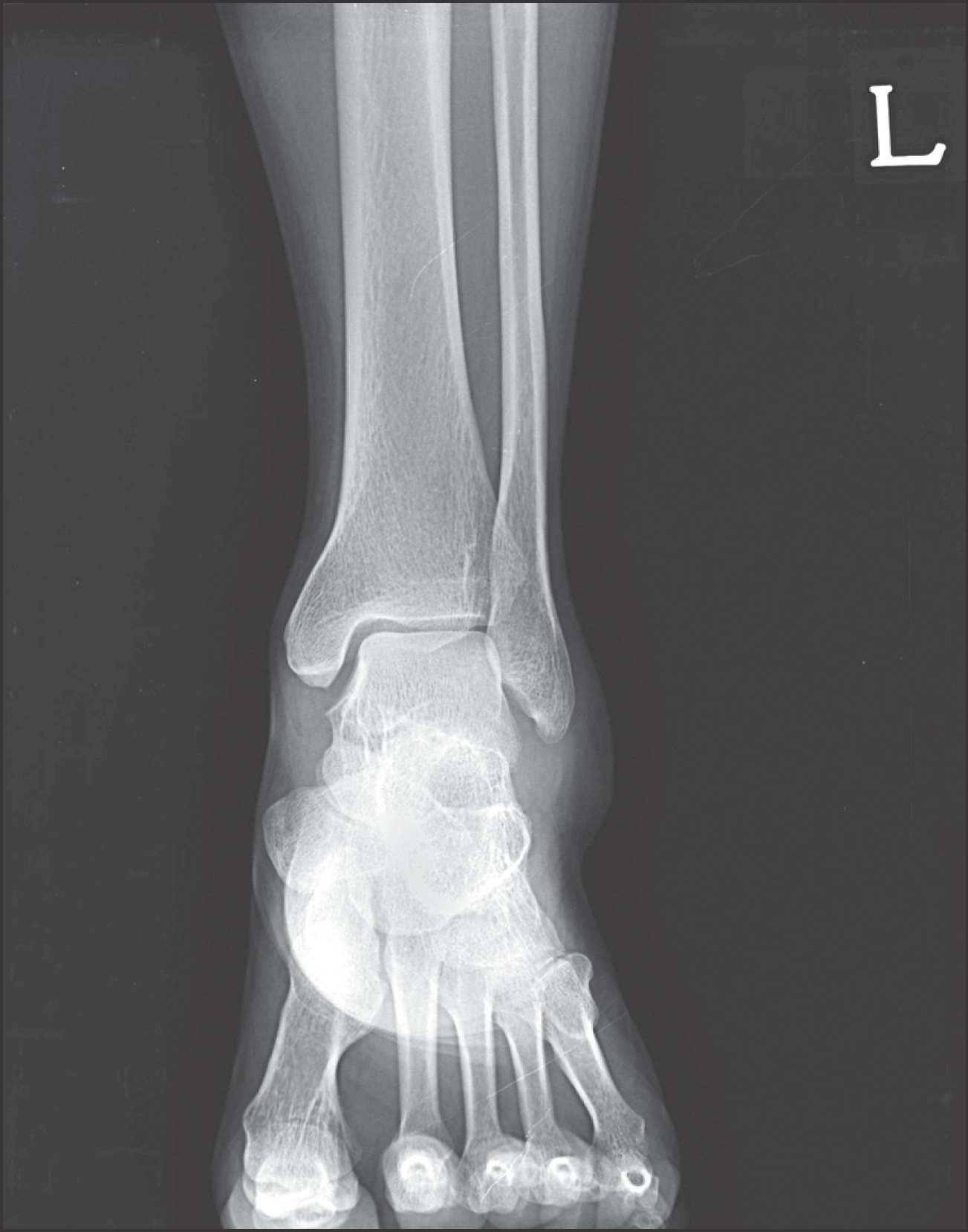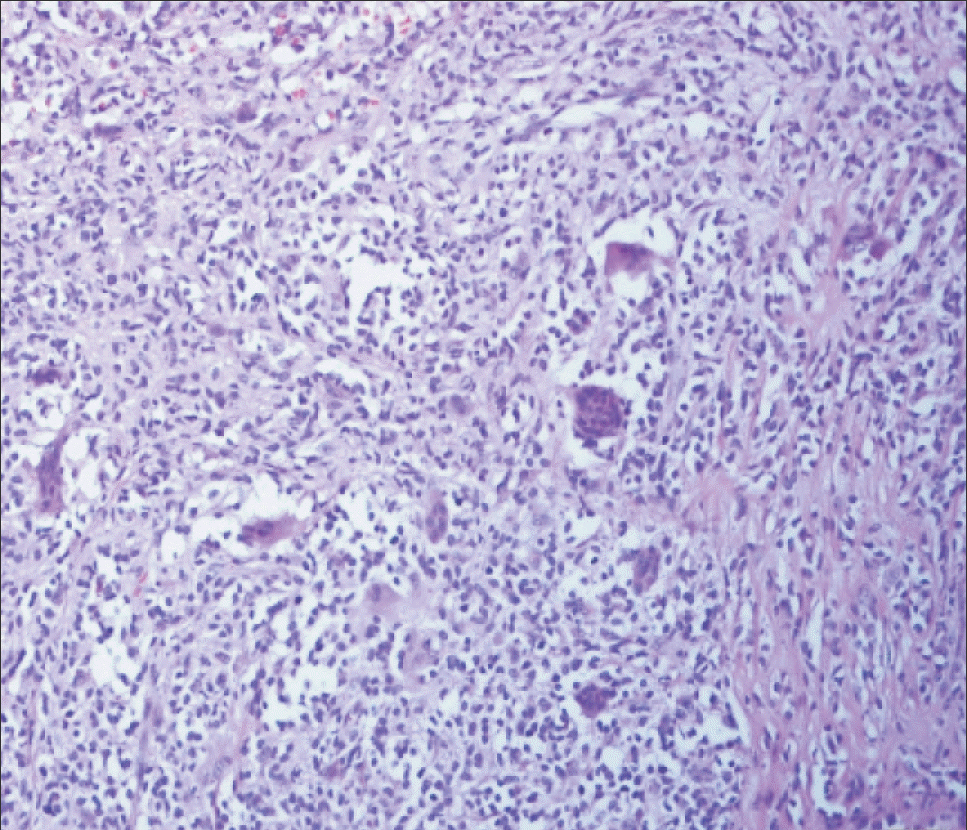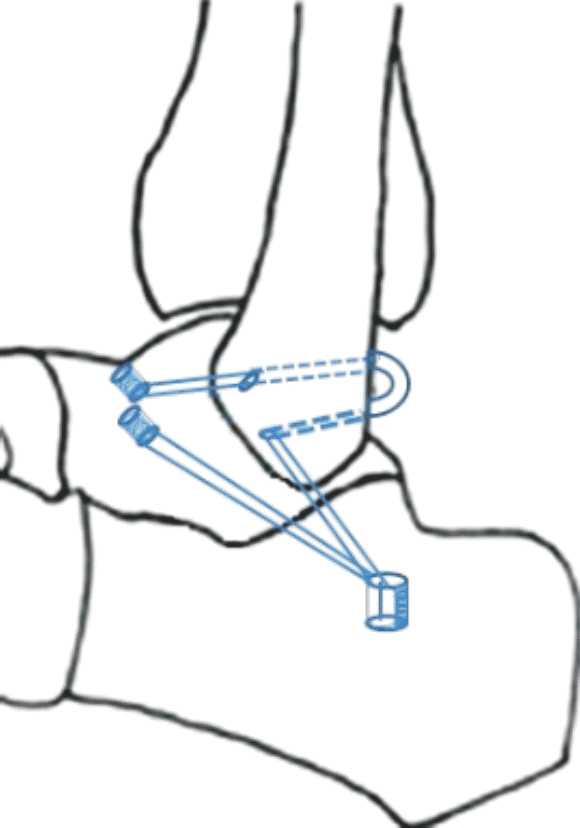Abstract
Diffuse pigmented villonodular synovitis (PVNS) involving ankle joint needs complete mass excision and total synovectomy to reduce recurrence rate, while surrounding ligaments can be easily damaged. So the concurrent ligament reconstruction should be considered for post-excisional instability in subtalar joint as well as lateral ankle joint. We describe our experience in the management of a diffuse type PVNS, invades lateral talocrural joint extended to subtalar joint and introduce a new technique of all-in-one reconstruction for anterior talofibular, calcaneofibular and cervical ligament. Our new reconstruction technique applying modified Chrisman and Snook technique is useful in stabilization for deficiencies of the ligament complexafter PVNS excisionat lateral ankle and subtalar joint.
Go to : 
REFERENCES
1.Stevenson JD., Jaiswal A., Gregory JJ., Mangham DC., Cribb G., Cool P. Diffuse pigmented villonodular synovitis (diffuse-type giant cell tumour) of the foot and ankle. Bone Joint J. 2013. 95:384–90.

2.Frassica FJ., Bhimani MA., McCarthy EF., Wenz J. Pigmented villonodular synovitis of the hip and knee. Am Fam Physician. 1999. 60:1404–10.
3.Hertel J. Functional anatomy, pathomechanics, and pathophysiology of lateral ankle instability. J Athl Train. 2002. 37:364–75.
4.Schnirring-Judge M., Lin B. Pigmented villonodular synovitis of the ankle-radiation therapy as a primary treatment to reduce recurrence: a case report with 8-year follow-up. J Foot Ankle Surg. 2011. 50:108–16.

5.Ward WG Sr., Boles CA., Ball JD., Cline MT. Diffuse pigmented villonodular synovitis: preliminary results with intralesional resection and p32 synoviorthesis. Clin Orthop Relat Res. 2007. 454:186–91.
6.Elmslie RC. Recurrent subluxation of the ankle-joint. Ann Surg. 1934. 100:364–7.
7.Chrisman OD., Snook GA. Reconstruction of lateral ligament tears of the ankle. An experimental study and clinical evaluation of seven patients treated by a new modification of the Elmslie procedure. J Bone Joint Surg Am. 1969. 51:904–12.
Go to : 
 | Figure 1.Preoperative plain anterior-posterior radiograph of left ankle shows diffuse soft tissue swelling, joint capsule distension without bony erosion. |
 | Figure 2.(A) These are magnetic resonance imaging of left ankle. T1- and T2-weighted fat suppressed sagittal images show large sized mass of low signal intensity in posterior aspect of ankle surrounding high signal intensity with focal intermediate signal intensity (arrows). (B) Coronal images show mass (arrows) involved into subtalar joint. |
 | Figure 3.(A) Curvilinear incision was done on lateral side of ankle. (B) Yellowish-brown color mass with localized dark brownish portion involves overall capsular structures in the lateral talocrural joint, and cervical and interosseous ligament into subtalar joint. (C) Widening of subtalar joint space in supination-adduction motion and abnormal increased talar motion in anterior draw and adduction of ankle joint was identified after mass excision. |




 PDF
PDF ePub
ePub Citation
Citation Print
Print




 XML Download
XML Download